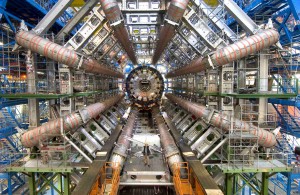In the coming weeks I will re-start my posting activities on this blog. Â For years I have posted long soliloquies on other platforms – contributing greatly to their bottom line – while neglecting to bring my thoughts here for a memorandum of record. No more. Â As a reacquaint myself with the platform, you’ll see lots of template changes and glitches until I find my flow. Bear with me. Â In the meanwhile here is some more audio content.
Why I’m Libertarian?
The short answer is I have no idea.
I was a conservative. There I said it – call this acceptance. I not a fully a Libertarian today. I will not and shall not pass a purity test because I cling to the belief in an enduring moral order.  I am not a warmonger; I am just not a pacifist. I reject the Progressive worldview because I reject the advocacy of a paternalistic State. So what did being a conservative mean at least to me?  It has been bastardized by media, intelligentsia and opportunist both Left and Right for many decades. A conservative, as I had come to believe it, was derived from the Russel Kirk conservatism of the Old Right (give it a read). In summary; things that have been tried, true and proven to order a society are eternal. What it has evolved into is a simply a belief structure that serves as speed bump on the road to serfdom, a road paved with corpse and good intentions in service of the State. What makes me more Libertarian today is a growing skepticism of that State, if not strongly considering arguments for it abolition. Haidt states that “Those who tend to see morality mostly through the prisms of Care/Harm and Fairness/Cheating are “liberal.†If your moral compass tends more toward Authority/Subversion and Sanctity/Degradation, you are “conservative.† I would argue that if your moral compass tends toward the prism of FORCE vs. CHOICE you are a “Libertarianâ€.  Not a pure manifesto, but a start of a journey. I am still formulating my thought processes on this.
Who Needs TV?
I have been noticing how little broadcast cable television I consume now that I have 3 streaming services and YouTube. To be exact my two little girls barely consume that much television either. My youngest consumes a horrendous amount of Netflix and Hulu (that reminds me I need to check my bandwidth cap this month), while my oldest is addicted to YouTube, not to mention the tons of free content available online from Disney and Cartoon Network. My own personnel video consumption habits have changed tremendously. I pay for Hulu, Amazon Prime, Netflix, purchase content weekly from Amazon Instant Video and Bit Torrent from time to time. I have hacked both my Roku boxes and look a tremendous amounts of YouTube content daily. The last time I look at cable television was the season finale of Mad Men (2 months ago). My wife seems to be the only holdout when it comes to broadcast TV and that is mostly DVR content. I would gladly dump Direct TV and put that money toward faster business class internet with no monthly cap and would still save money. That is not to say I am considering this option anytime soon, my wife would have my head and I still like my occasional sporting events. But it does beg the question, who still needs TV?
On the Verge
With the (physics) world breathlessly awaiting the announcement of the possible discovery of the Higgs Boson, the so called God-particle, it’s a good time to put the scope and impact of this discovery into context.
If we are on the Verge of a the scientific discovery of our time then allow me to play the cynic. Â Never has so much money been spent to find something so small, or has it? Â Â That said the most transformative scientific efforts of our time have always had enormous costs:
The Apollo Program (in 2005 Dollars) – $170 billion
The Manhattan Project (in 2005 Dollars) – $24.4 Billion
The Large Hadron Collider ~ $9 Billion
The Human Genome Project ~ $3.3 Billion
It remains to be seen what ultimate effect this discovery of the Higgs Boson will have on history, scientific progress or society at large, but in terms of cost it is in some good company.  All of the remaining projects above have proved transformative and I suspect the Higgs discovery, and the off shoot of research that will follow, will rank right up there.  This is a triumph of man’s reason over curiosity.  Exponential change is upon us and lets hope that history, scientific progress and society benefit.
Gensis for the Theory of Everything
Been watching and reading a lot about the great physicist and theoreticians of the past 100 years.  There are some great documentaries (here, here, here) on YouTube that are a fascinating history of  how physics moved from Newton to Einsteins’ general relativity, on to quantum physics then String theory.
Albert Einstein hated Quantum theory and set out until his last breath to disprove it. As the father of general relativity, he saw quantum mechanics as kooky and a affront to god. In his attempt to discredit it he gave unexpected birth to String Theory, the leading candidate for the “theory of everythingâ€. String Theory is the emerging branch of science that attempts to combine quantum mechanics, Einstein’s general relativity theory as well as other less known forces of nature. If he were alive today, he would loath it. Einstein wanted to find a equation that eloquently described the mind of god, a predictable, non-probabilistic universe. Ironic because in his attempt to destroy and discredit quantum realm, he gave inadvertent birth to this highly usual theory of everything.  You learn something new every day.
Below (in order) are the YouTube videos the help me scope this observation.





